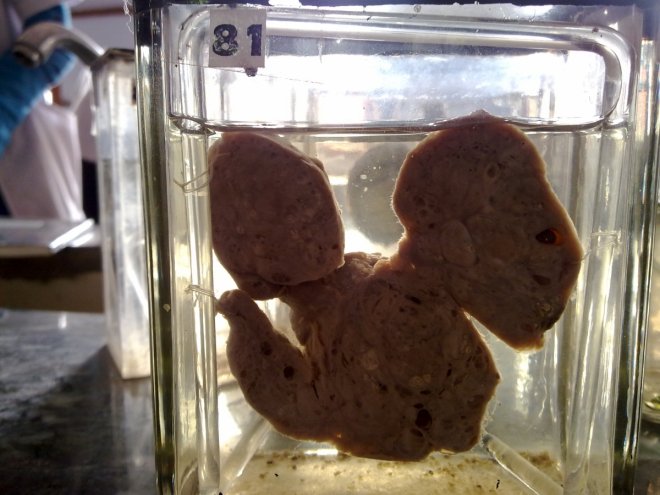
September is considered the Prostate Cancer Awareness Month in the US, in a bid to enlighten people about the key aspects of prostate cancer. On this occasion, take a few minutes to educate yourself about prostate cancer: its symptoms, risk factors, and treatment.
The prostate is an endocrine gland in the male reproductive system of mammals, which helps in ejaculation and secretion of semen. Prostate cancer is very common among men, especially those having a family history of cancer. In fact, it is the second most common cancer in men, after skin cancer. Studies have shown that 1 man in 7 is likely to be diagnosed with prostate cancer in life.
Prostate cancer is seen mainly in men older than 50 years of age. The average diagnosis age is about 66. In America, prostate cancer is the third leading cause of death in men. A survey shows that about 1 in 39 American men is likely to be diagnosed with prostate cancer. However, most diagnosed men are able to survive the disease, with 2.9 million survivors in the US till date. It gets harder to cure as it metastasizes in the body.
There are several types of prostate cancer, the most common being adenocarcinomas, which develop from gland cells. The rate of growth in also different for different types, with some growing much more rapidly when compared to others. Often, autopsy reports have shown that men dying of other causes have had prostate cancer during their life, without it even being detected or cured.
Symptoms of prostate cancer
Early stages of prostate cancer generally do not show any symptoms. However, in advanced stages, prostate cancer manifests itself in symptoms related chiefly to the urethra. Common symptoms include frequent or excessive urination, difficulty in starting a urine stream, or controlling it. This is accompanied by pain during urination and abnormal rectal examination reports. Prostate cancer may even lead to passing blood with urine. In advanced stages, symptoms include a dull pain in the bones and lower back, frequent fractures from minor injuries, and excessive weight loss. The afflicted person might also experience fatigue, shortness of breath, and inability to perform physically demanding tasks.
Risk factors
Risk factors refer to any cause that has an influence on a person's probability of suffering from a disease. Different types of cancer are influenced by different risk factors. Factors related to lifestyle can be controlled, like smoking and drinking, unlike certain other risk factors like genes and family history which are beyond our control. However, risk factors do not guarantee the occurrence of a disease or immunity from it.
The risk factors for prostate cancer are several in number. Research has showed that it is much more common in men above 50 years of age. There are very few reported cases of prostate cancer occurring before the age of 40. Another factor influencing prostate cancer is race, though its reasons have not been proved yet. Studies show that prostate cancer is more common in African-American, African-Caribbean, and non-Hispanic white men. Asian American and Hispanic men are less likely to have this disease. Lifestyle choices are said to be a major risk factor, with it affecting North American, Australian, and Western European men more than men from Asia, Africa, and South America.
Prostate cancer also depends upon genetic factors and family history of cancer. Apart from that, obese men, smokers, and unhealthy eaters are more likely to be afflicted. Prolonged exposure to chemicals, frequent sexual intercourse, and vasectomy also increase chances of prostate cancer.
Treatment and Cure
Urologists and oncologists are the most qualified to treat prostate cancer. Primary diagnosis involves Digital Rectal Examination (DRE), Prostate Specific Antigen (PSA) blood test, and prostate biopsy. Once cancer is diagnosed, it can be treated by regular monitoring, surgically removing the prostate, radiation therapy, and chemotherapy. These should be followed by Androgen Deprivation Therapy (ADT) and long-term hormone therapy. Even after being cured, the patient is advised to stick to regular medical check-ups to ensure the disease has not relapsed.
The basic thing to remember is the importance of keeping heathy and having an addiction-free lifestyle. Additionally, every person should have regular medical examinations and monitor their bodily functions. During this Prostate Cancer Awareness Month, let's all pledge to keep ourselves and our dear ones happy and healthy.









